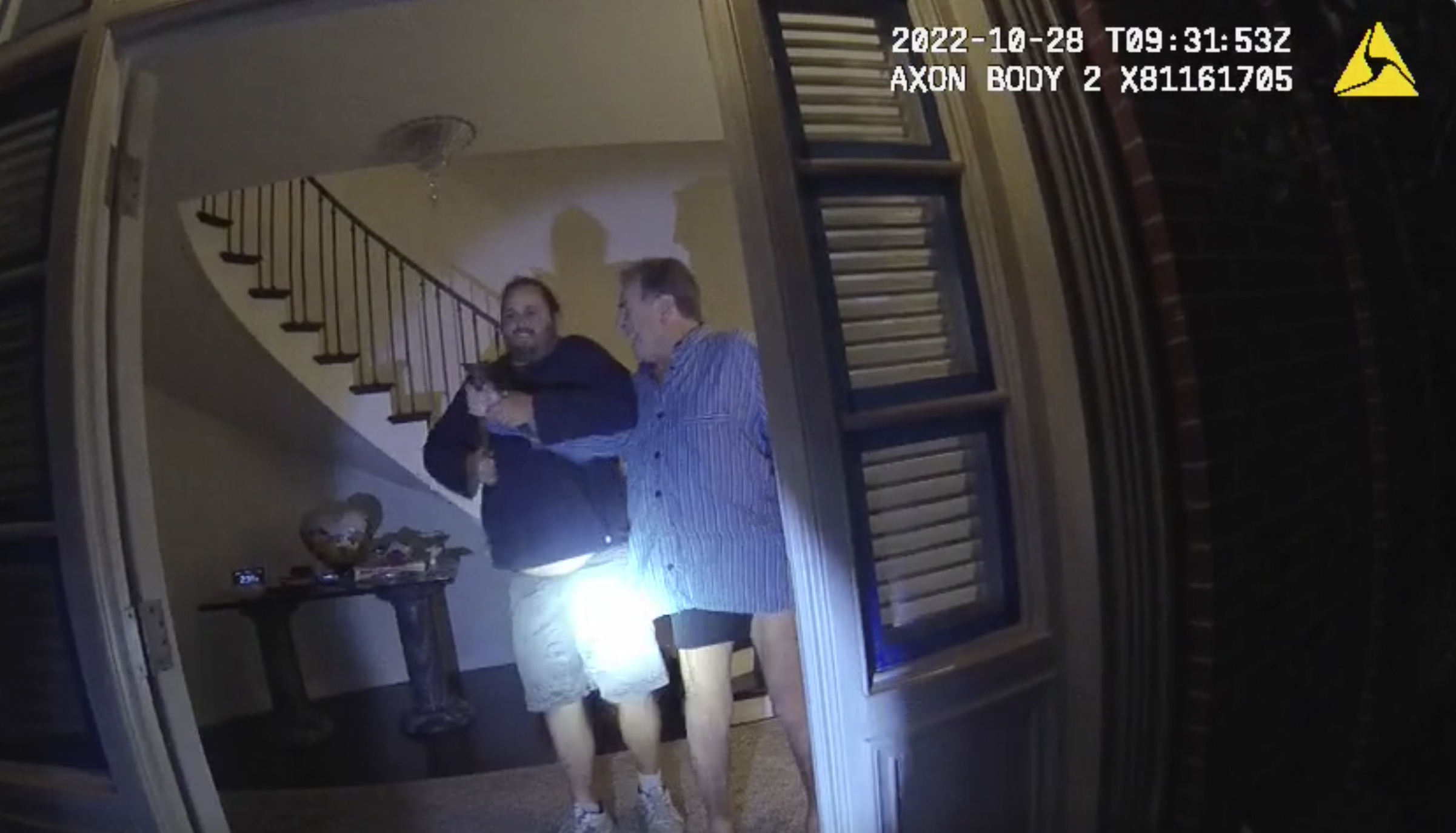David DePape, the man who attacked Nancy Pelosi's husband in their San Francisco home two years ago, was sentenced to life without parole Tuesday on his state conviction.
A San Francisco judge handed down the sentence on DePape's aggravated kidnapping conviction in the October 2022 attack on Paul Pelosi. DePape also got eight years on other charges in the state case.
Before the sentencing, DePape had a chance to address the court and the Pelosi family. But first, his attorneys were expected to ask for a new trial.
In October 2022, DePape broke into the Pelosis' Pacific Heights home, looking for then-House Speaker Nancy Pelosi, with the intention of kidnapping her and holding her hostage.
Get top local stories in DFW delivered to you every morning. >Sign up for NBC DFW's News Headlines newsletter.
As San Francisco police tried to move in, DePape beat Paul Pelosi savagely with a hammer, causing severe injuries to Pelosi's head and neck. Pelosi spent weeks in the hospital recovering.
DePape already is serving a 30-year sentence in federal prison for the crime. U.S. Attorney General Merrick Garland said the sentence was a warning that violence against those who serve the public and their families will not be tolerated.
Legal analyst Steven Clark says DePape's words in court Tuesday would be critical for him in any future court dealings.
"That’ll be very important if he is going to try to get out on parole at a later date," Clark said. "He needs to express remorse and show that he understands the magnitude of what he did to Mr. Pelosi and his family and to America."
Clark added that while long federal and state sentences might seem redundant, they serve as a safety net in the event something changes on appeal. DePape’s legal team has said it would appeal the state case, claiming the dual convictions amount to double jeopardy.
Clark says the appeals court might take issue with DePape's mental health.
"What never came through in this case was Mr. DePape's mental state," Clark said. "And will an appellate court look at this case and ask why wasn’t his mental health brought to light during this trial to reflect on what he did, whether that affected his behavior."



